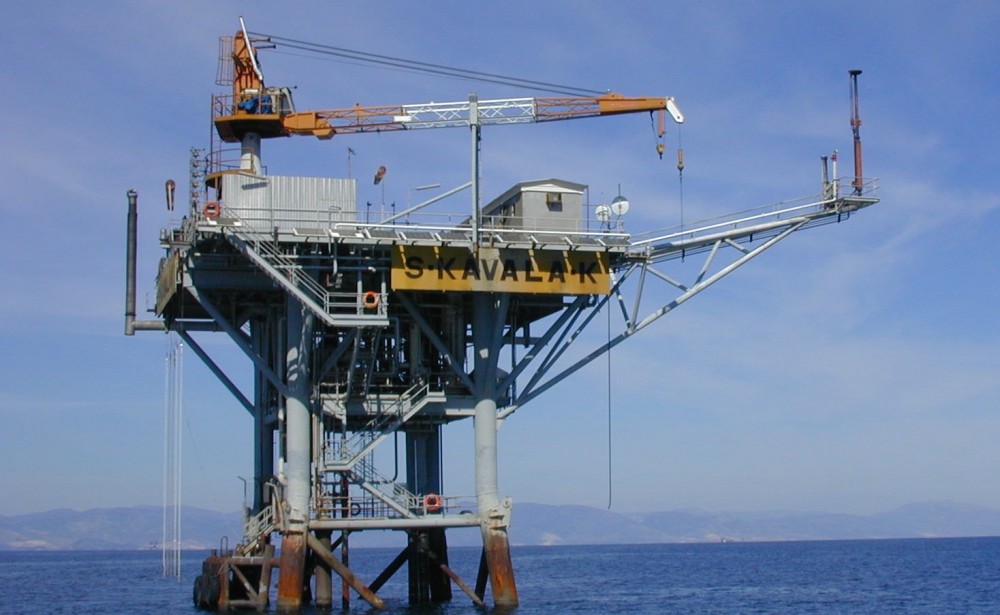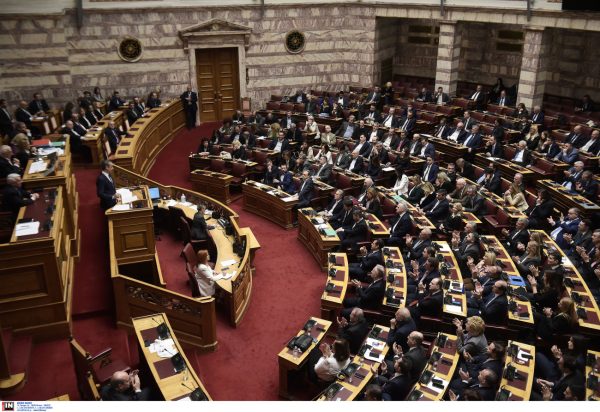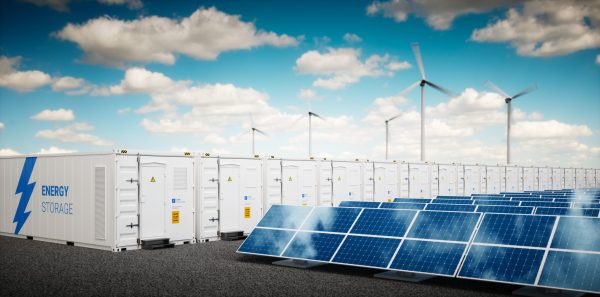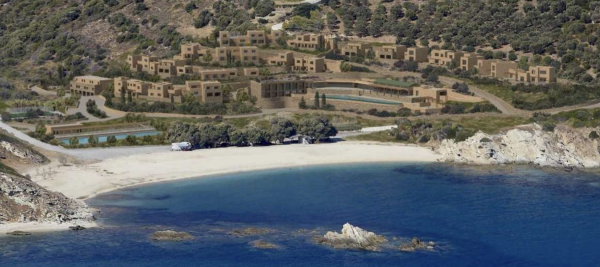
The Greek research project for the identification of possible natural gas deposits in the sea and land concessions is in full progress.
The Hellenic Management Company of Hydrocarbons and Energy Resources (EDEYP) so far verifies the compliance with the agreements with the companies ExxonMobil, Energean and Helleniq Energy regarding the progress of the seismic surveys. The investors have fully met their contractual obligations by bringing in the seismographic vessels to carry out the additional work of two-dimensional or three-dimensional seismic surveys, depending on the block.
The investors
In fact, the concessionaires have proceeded to shorten and speed up actions on their part, seeking to give momentum… to the Greek effort. Energean’s move to go directly to 3D seismic surveys in offshore block 2 in the Ionian Sea is indicative, as well as Helleniq Energy which carried out in record time 2D and 3D surveys within 2022 in the “Ionio” and “block 10” concessions.
ExxonMobil, as TA NEA newspaper wrote yesterday, is expected to extend its seismic program in the sea blocks of Crete by scanning every geological structure in a more efficient way. The information even wants that it intends to bring a drilling rig a year earlier.
The threats
However, within 2023 the companies as well as the Greek hydrocarbon exploration and exploitation project as a whole are likely to face three threats.
The case of Energean in the land concession of Ioannina, which is also the most mature area for the first drilling in Greece, shows the risks. According to what the OT “Inside Stories” column wrote yesterday and despite what the EDEYP timetables show and the recent statements of the political leadership of the Ministry of Environment and Energy, the first drilling will eventually take place, not within the year, but at the best of cases in the first quarter of 2024. And of course, the time shift is not attributed to Energean.
But let’s look at the risks that threaten to delay the program of research and exploitation of hydrocarbons:
1. The administrative bureaucracy.
Before drilling, the Social and Environmental Impact Study must be issued and approved by the Ministry of Internal Affairs.
From the moment of its submission to the competent Directorate of Environmental Licensing (DIPA), 30 days are required in order to check whether the file is complete or incomplete.
And if it is complete then DIPA should send the Study for consultation to the competent Region and other bodies. The estimated period for the consultation, the opinions of the authorities and the final approval by DIPA is at least eight months.
Then it takes six months to find the equipment (drilling rigs), set up the construction site and locate a port or base area for the drilling rigs.
The aforementioned time leads, for example in the case of Ioannina, to the first quarter of 2024 in order to start drilling.
2. Greek national elections
The coming semester is an election year.
It is not excluded, based on Greek reality, that all public services will be frozen.
As well as the ministers putting down their pencils… The conduct of the elections in Greece also has uncertainty, due to the electoral system and how this has shaped up. The system currentli in use is simple proportional representation. So delays are likely to occur as pundits see an inability to form a government, leading to a second round unde a different system of reoinforced proportionality.
3. Regional and municipal elections.
Regional and municipal elections are held in Greece in autumn.
And it may be that today’s local rulers support the venture of exploration to locate natural gas deposits. However, no one is in a position to know whether the next day, the new local leaderships will continue to support the project or will hinder it.
Derailment
According to market players, these threats are likely to shift in time the country’s entire project for the research and exploitation of its mineral wealth.
And of course the elections are not possible and natural to be avoided, as they comment. However, administrative obstacles and bureaucracy are issues that should be addressed in time.
Latest News

Inflation in Greece at 3.1% in March, Eurostat Reports
Average inflation in the eurozone settled at 2.2%, compared to 2.3% in February

Greece’s Unemployment Rate Drops to 8.6% in February
Despite the overall decline, unemployment remains higher among women and young people.

Jerry Kalogiratos Highlights Key Role of Energy Transition and Data Demand in LNG Outlook
Energy transition and the prospects of LNG were discussed at Capital Link’s 19th Annual International Maritime Forum, during a panel discussion with Jerry Kalogiratos (Capital Clean Energy Carriers Corp.)

Santorini Safe and Ready for a Dynamic Tourism Season
Authenticity, cultural heritage, and genuine experiences at the center of Santorini's new promotional campaign

Electricity Bills: Greece Announces Reduced Tariffs Schedule
Greece will now offer lower electricity rates between 11:00-15:00 and 02:00-04:00

Chevron Confirms Eyeing Natural Gas Exploration South of Crete
Chevron recently declared its intent to explore a third area, south of the Peloponnese.

Evangelos Marinakis: A time of change from which shipping can benefit
Speaking at the 19th Annual Capital Link International Shipping Forum Evangelos Marinakis stressed the challenges that shipping faces today

Retail Trade in Greece Up 2.5% in December 2024: ELSTAT
In January 2025, the General Turnover Index recorded a 2.5% increase compared to January 2024. Compared to December 2024, it recorded a significant decline of 18.4%

Greek Fruit and Vegetable Exports Surge
Greek exporters have expressed concerns over a new draft law in Bulgaria that mandates at least 50% of products in stores to be of Bulgarian origin.

Trump Tower in Greece? Speculation Grows Over Potential Investment
In 2007, the Trump Organization explored the possibility of constructing a skyscraper complex and casino at the former Ellinikon Airport site in Athens











![Τουρκία: Μεγάλες βλέψεις για παραγωγή ηλεκτρικών οχημάτων [γράφημα]](https://www.ot.gr/wp-content/uploads/2025/03/ot_turkish_autos-90x90.png)











![ΕΛΣΤΑΤ: Αυξήθηκε η οικοδομική δραστηριότητα κατά 15,6% το Δεκέμβριο [πίνακες]](https://www.ot.gr/wp-content/uploads/2025/03/DSC9655-2-1024x569-1-90x90.jpg)






![Δασμοί Τραμπ: Αντίστροφη μέτρηση για την «Ημέρα Απελευθέρωσης» – Μνήμες από τη Μεγάλη Ύφεση [γραφήματα]](https://www.ot.gr/wp-content/uploads/2025/04/ot_trump_tariffs2-600x352.png)










 Αριθμός Πιστοποίησης
Αριθμός Πιστοποίησης